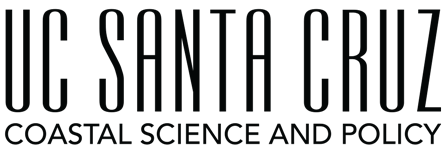
From left: Temi Akinyemi (CSP class of 2025); Oumar Cisse, Andyll Quamie, and Sidney Opiyo, (CSP class of 2026) attend BIMS week in December 2024.
Blog post written by CSP students Temi Akinyemi (class of 2025); Oumar Cisse, Andyll Quamie, and Sidney Opiyo, (class of 2026).
The Unthinkable: Inspiration from the Keynote Speakers at BIMS Week
As we kicked off Black in Marine Science (BIMS) Week on December 1, 2024, the atmosphere was charged with excitement, unity, and purpose. This annual event celebrates the contributions of Black scientists to marine research and highlights the importance of ocean conservation. Among the many inspiring voices, Dr. Dawn Wright’s keynote address stood out, urging us to embrace the challenges of marine conservation with courage and innovation.
Dr. Wright’s message resonated deeply: “We are here for each other; we are here for the ocean.” Her words encapsulate the essence of our collective mission. She reminded us that the ocean—with its vast mysteries and critical ecosystems—needs us more than ever. Dr. Wright’s address was a rallying call, inspiring us to think beyond perceived limitations and mobilize communities to tackle the pressing issues affecting our marine environments.
Complementing Dr. Wright’s talk was the insightful perspective of Dr. Christian Cooper, whose emphasis on biodiversity and inclusivity reinforced the idea that ocean stewardship requires both science and community advocacy. These keynote addresses challenged us to think boldly, act decisively, and reach beyond our comfort zones to innovate and protect the ocean.
Temi’s Session: Capstone Presentation and Insights
Participating in BIMS Week was an emotional and intellectually enriching experience for us. We entered the event hoping to learn and share, and it exceeded all expectations. One of the standout moments was when Temi presented her ongoing capstone project. She shared insights into the dynamic relationship between fisheries, aquaculture, trade, and food security, categorizing countries into three groups based on their approaches:
- Aquaculture Innovators (e.g., Nigeria and Ghana): These nations are reducing imports by developing robust aquaculture systems to meet local food and nutritional needs.
- Import-Dependent Nations (e.g., Côte d’Ivoire and Benin): These countries rely heavily on imports, revealing vulnerabilities tied to external food sources.
- High Exporters with Limited Aquaculture (e.g., Mauritania and Senegal): These nations focus on export-driven production but have untapped potential in aquaculture development.
Presenting this analysis boosted our confidence and deepened our understanding of these critical global issues.

Photo: CSP student Temi Akinyemi presents her capstone project research at the conference.
The Value of Self-Care in Research
One unexpected highlight of BIMS Week was the focus on researcher well-being. As scientists, we often immerse ourselves in our work, sometimes to the detriment of our health. This conference offered a unique solution: massage and therapy sessions. Initially, we were skeptical about their impact on productivity, but we quickly realized how valuable these moments of reprieve were.
The massages provided a much-needed mental and physical reset, easing the tension from work hours. This experience emphasizes the importance of integrating self-care into our routines. By prioritizing wellness, we can strengthen our research journeys’ focus, creativity, and resilience.
Real-Life Exposure: Tours That Inspire
BIMS Week also included hands-on experiences that brought science to life. A visit to the Scripps Institution of Oceanography’s research vessel, Sally Ride, was a highlight. We explored the ship’s advanced laboratories and learned how scientists conduct groundbreaking research at sea. Witnessing the crew’s and researchers’ dedication inspired a profound appreciation for oceanographic studies.
Our trip to the Birch Aquarium was equally impactful, where we explored vibrant coral reefs, unique seahorses, and many marine species. The exhibits highlighted marine life’s challenges, from climate change to pollution, and showcased ongoing conservation efforts. These experiences deepened our commitment to ocean protection and education.


Photo, left: BIMS attendees on R/V Sally Ride. Photo, right: CSP student Sidney Opiyo on R/V Sally Ride.
The Power of Science Communication
Another critical takeaway from BIMS Week was the importance of science communication. We realized the power of storytelling in science through documenting experiences with photos and videos, sharing insights on social media, and engaging with peers. These tools enhance professional development and foster connections within the global scientific community.
Highlights and Networking Opportunities
One of the most inspiring aspects of BIMS Week was the energy and enthusiasm of scientists passionate about the ocean. Networking with other scientists with similar interests and engaging in meaningful conversations were incredibly valuable. These interactions broadened our perspectives and highlighted the importance of collaboration and community in advancing marine science.
Moving Forward: Lessons from BIMS Week
As we reflect on the wisdom shared by Dr. Dawn Wright and other speakers, the message is clear: we are all stewards of the ocean, and our collective efforts can drive meaningful change. By embracing bold ideas, prioritizing self-care, and fostering collaboration, we can champion a sustainable future for our marine ecosystems. Here’s to continuing the momentum, inspired and united by the incredible experiences of BIMS Week.

Photo: CSP students Oumar Cisse, Temi Akinyemi, Sidney Opiyo, and Andyll Quamie (front) at the 2024 BIMS Conference in San Diego.
